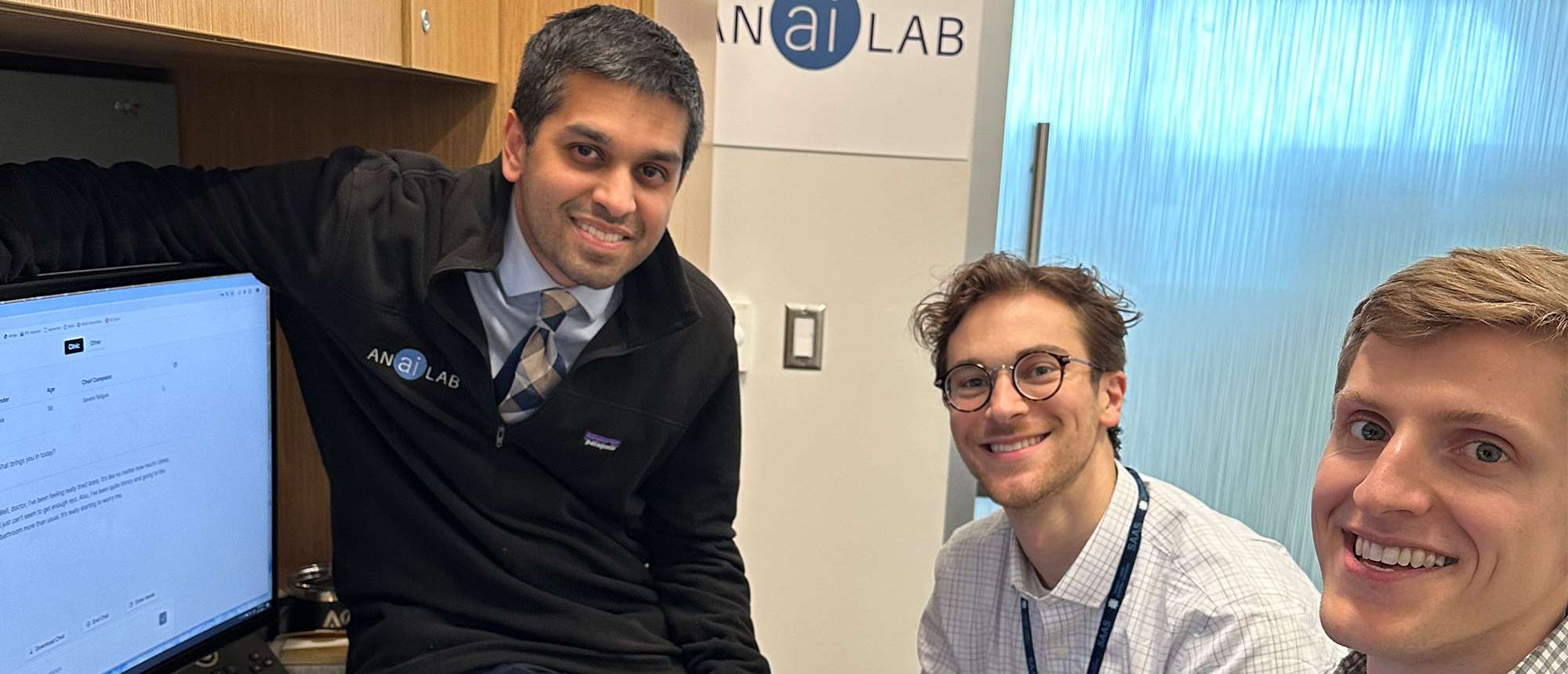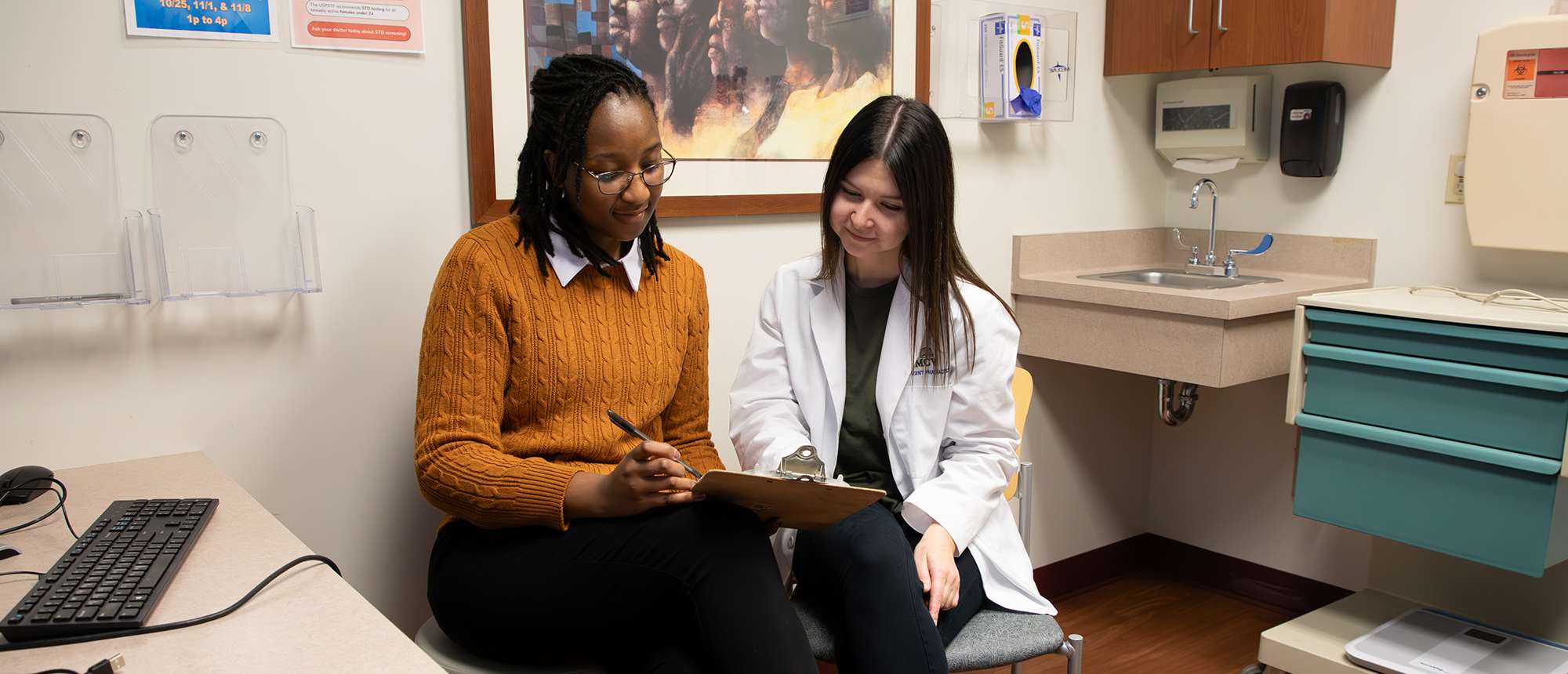Empowering Tomorrow’s Doctors: ChatClinic Revolutionizes Education as an AI Tool for Medical Students

In the evolving landscape of medical education, the integration of data science and artificial intelligence (AI) has emerged as a transformative force, reshaping the way future healthcare providers learn and practice medicine. At the forefront of this paradigm shift is the Data Science Interest Group (DSIG) at the Medical College of Wisconsin (MCW), a student-led initiative dedicated to exploring the intersection of data science, AI and medicine.
“Recognizing the immense potential of these technologies, a group of medical students at MCW saw the need to establish a dedicated platform for exploring and harnessing these innovations,” says Nathaniel Verhagen, co-founder of the DSIG. “Thus, DSIG was born, driven by a vision to equip medical students with the skills and knowledge to thrive in an increasingly data-centric landscape.”
Founded on the principles of curiosity, education, collaboration and leadership, the DSIG serves as a catalyst for innovation within the medical community. Through its four core pillars, the DSIG empowers students to explore the vast potential of data science in health care, cultivate essential skills, collaborate with peers and faculty, and learn from leaders at the intersection of data science and medicine.
Simulating Patient Interactions with AI
One of the most significant endeavors to emerge from the DSIG is ChatClinic, a groundbreaking AI-based medical education tool developed by Verhagen and fellow student Nathan Wolfrath While recent buzz surrounding AI in healthcare has focused on augmenting care for patients, ChatClinic is at the forefront of using this technology in medical education. Inspired by the need to bridge the gap between theoretical learning and clinical practice, ChatClinic leverages large language models (LLMs) to simulate patient interactions, providing medical students with invaluable hands-on experience in history-taking and clinical decision-making.
The genesis of ChatClinic stemmed from a fundamental challenge faced by medical students.
“During the preclinical years, opportunities for direct patient interactions are limited, hindering the ability to form meaningful, clinically relevant questions and effective reasoning through complex clinical scenarios,” Verhagen explains. “It was this gap that inspired the creation of ChatClinic. Recognizing the immense potential of large language models like ChatGPT to simulate realistic patient interactions, we envisioned a novel educational tool that could bridge this divide.”
Leveraging Wolfrath’s expertise in software engineering and industry experience, ChatClinic is built on a foundation of cutting-edge technology. Powered by sophisticated AI algorithms and modern web frameworks, ChatClinic offers a platform for medical students to practice clinical reasoning, order diagnostic tests and deepen their understanding of various diseases.
Supervised Machine Learning
With a commitment to accessibility and scalability, ChatClinic undergoes perpetual refinement, guided by feedback from users and the oversight of esteemed experts like Anai N. Kothari, MD, MS, assistant professor of surgery and member of MCW’s new Data Science Institute. This collaborative approach ensures that ChatClinic remains ethically grounded, factually accurate, and optimally efficient, thereby enriching the educational journey of aspiring medical professionals.
“The reception of ChatClinic at MCW and beyond has been overwhelmingly positive. This enthusiasm has been a driving force behind our pursuit for continuous improvement of ChatClinic,” Verhagen says.
However, the integration of AI into medical education is not without its challenges. In response to the rapid evolution of technology, particularly in the field of AI, Verhagen and his team have recognized the need for proactive measures to address potential risks and biases associated with ChatClinic. To ensure its ethical deployment, they have initiated evaluation studies involving academic physician experts. These experts rigorously assess ChatClinic’s responses, focusing on factors such as factual accuracy, comprehension, reasoning and the potential for harm or bias. This meticulous evaluation process underscores their commitment to responsible innovation in medical education.
“Our commitment to ethical AI integration and physician expert evaluation was presented at the 2024 Academic Surgical Congress in Washington, DC. This platform provided an opportunity to engage with students and physicians across the country and receive feedback for continued improvement of ChatClinic,” Verhagen says.
Looking forward, Verhagen and his collaborators foresee the integration of ChatClinic into the curricula of MCW’s pharmacy and medical schools. Beyond this initial step, their aspiration extends to becoming pioneers in the realm of simulated patient interactions within medicine.





